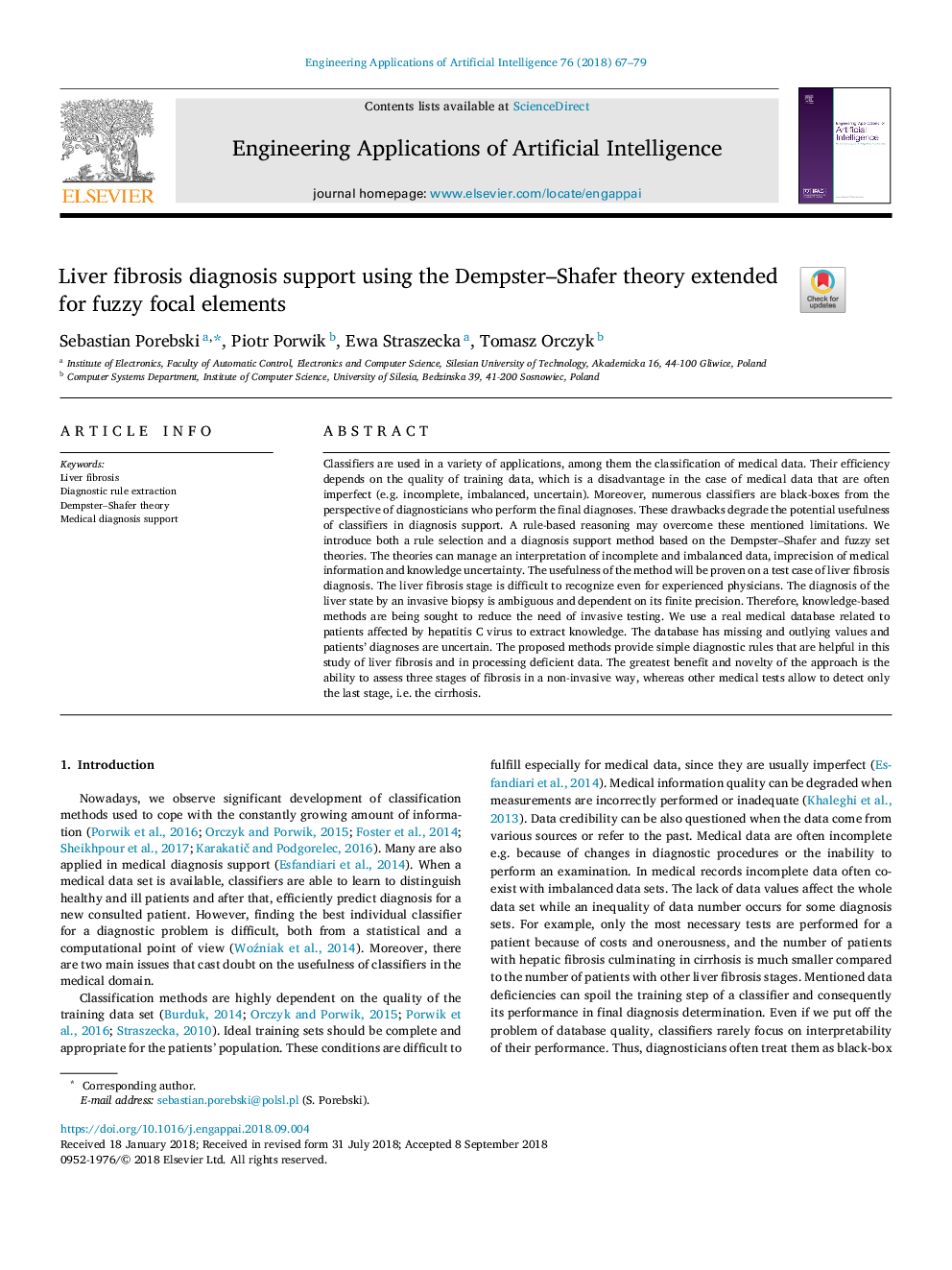| Article ID | Journal | Published Year | Pages | File Type |
|---|---|---|---|---|
| 11028871 | Engineering Applications of Artificial Intelligence | 2018 | 13 Pages |
Abstract
Classifiers are used in a variety of applications, among them the classification of medical data. Their efficiency depends on the quality of training data, which is a disadvantage in the case of medical data that are often imperfect (e.g. incomplete, imbalanced, uncertain). Moreover, numerous classifiers are black-boxes from the perspective of diagnosticians who perform the final diagnoses. These drawbacks degrade the potential usefulness of classifiers in diagnosis support. A rule-based reasoning may overcome these mentioned limitations. We introduce both a rule selection and a diagnosis support method based on the Dempster-Shafer and fuzzy set theories. The theories can manage an interpretation of incomplete and imbalanced data, imprecision of medical information and knowledge uncertainty. The usefulness of the method will be proven on a test case of liver fibrosis diagnosis. The liver fibrosis stage is difficult to recognize even for experienced physicians. The diagnosis of the liver state by an invasive biopsy is ambiguous and dependent on its finite precision. Therefore, knowledge-based methods are being sought to reduce the need of invasive testing. We use a real medical database related to patients affected by hepatitis C virus to extract knowledge. The database has missing and outlying values and patients' diagnoses are uncertain. The proposed methods provide simple diagnostic rules that are helpful in this study of liver fibrosis and in processing deficient data. The greatest benefit and novelty of the approach is the ability to assess three stages of fibrosis in a non-invasive way, whereas other medical tests allow to detect only the last stage, i.e. the cirrhosis.
Keywords
Related Topics
Physical Sciences and Engineering
Computer Science
Artificial Intelligence
Authors
Sebastian Porebski, Piotr Porwik, Ewa Straszecka, Tomasz Orczyk,
